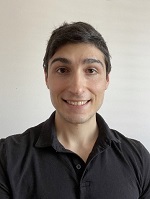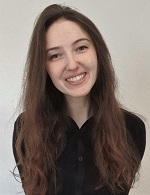”Our goal of starting the RAPTOR project was to educate a new generation of medical physicists to become experts in providing solutions to one of the great challenges of particle therapy ‑ the detrimental effects of anatomical changes. By working together across institutions, we bring together many different competences and build a strong community.”
Stine Korreman (Danish Centre for Particle Therapy, supervisor)
Characteristics of recruitment
Under the MSCA ITN funding scheme, the candidates cannot be hosted by an institution that is located in the country where they have resided or carried out their main activity in the years before recruitment. Therefore, each of the early-stage researchers (ESRs) who were selected to take part in this programme had to move to a different country. This led to a diverse team of ESRs who originated from 11 countries in Asia, South America and Europe.
”This feature of the programme makes it a unique opportunity to learn about other cultures and to learn interpersonal abilities to interact with people, since at the end of the day science doesn’t have frontiers.”
Luciano Rivetti (Early-stage researcher)
Advantages of being a RAPTOR MSCA fellow
The RAPTOR ITN concentrates on the training of future generations of highly skilled experts in the field of particle therapy. The ESRs are overseen by local supervisors and a co-supervisor and mentor from the other RAPTOR institutions.
Three RAPTOR schools form the key element of the training programme. Each addresses competence in various areas of particle therapy and transferable skills. The first RAPTOR school, called "Loop Basic", took place in Descember 2021. It involved lectures on the fundamentals of particle therapy conducted by experts in the field (Figure 1). External students are welcome to attend these RAPTOR schools; the upcoming course “Loop Requirements” will be held in Ljubljana in September 2022 (register here).
Another highlight of the training is that the ESRs undertake long- and short-term research visits at beneficiary and partner institutions.
The opportunity to connect with so many professionals from the particle therapy community enables the ESRs rapidly to feel at ease and opens the door to future collaboration and possibilities of employment.
”In addition to the comprehensive training programme, sharing the PhD journey with the other ESRs, supporting each other and celebrating our achievements in the group chat and on regular, casual Zoom sessions, is my personal cherry on the RAPTOR cake!”
Nadine Vatterodt (Early-stage researcher)
.jpg.aspx)
Figure 1: Participants in the first RAPTOR school (loop basic)
Responsibilities of MSCA fellows
Certain demands are made of the students who hold the fully-funded PhD positions, their supervisors and coordinators. These come in the form of “deliverables” and “milestones”. Many are project-related goals with individual deadlines that the PhD candidates must satisfy, while others may target the ESRs’ career development or dissemination of information about RAPTOR itself and its achievements. These goals have aided in the prevention of overlapping among the projects and the exploration of synergies among them. They are intermediate goals, which help to focus the projects to the needs of particle therapy.
”A project like RAPTOR fuels scientific production, but above all it promotes collaboration among partners. Working towards common “deliverables” and “milestones” is an effective way to foster collaboration and highlight synergies among projects.”
Francesca Albertini (PSI, coordinator and supervisor)
Impact of the RAPTOR network on the research projects
The greatest strength of such a network is the unique amount of exchange and potential collaboration that occurs among the involved projects. In regular meetings (the so-called science check-ins), the ESRs update their RAPTOR colleagues on their projects and challenges that have arisen. These meetings are a key element of the network’s contribution to the PhD projects, since mutual requirements can be identified to facilitate the interchange of expertise, methods and resources among the consortium members. Furthermore, because the senior researchers of RAPTOR have different backgrounds, their input encourages discussions that consider the points of view of clinicians, academics and industrial experts. This aids the development of applied research that is both highly relevant to the clinics and has the potential to be translated into commercial products.
“The many contact points of the RAPTOR network, where students and more senior researchers from many research institutes get to interact regularly in both formal and informal ways, enable effective dissemination of knowledge and ideas throughout the network.”
Albin Fredriksson (RaySearch, supervisor)
Learn more about projects and people involved in RAPTOR
Initial descriptions of the 15 PhD projects and introductions to our ESRs and supervisors can be found on our webpage. Follow us on Twitter and LinkedIn to be updated on news and upcoming events. If you are more interested in the daily lives of our PhD students, keep your eyes open for our RAPTOR Instagram account.

Luciano Rivetti
PhD student, ESR of RAPTOR
Faculty of Mathematics and Physics,
University of Ljubljana
Ljubljana, Slovenia
Luciano.Rivetti@fmf.uni-lj.si

Nadine Vatterodt
PhD student, ESR of RAPTOR
Department of Clinical Medicine,
Aarhus University
Danish Centre for Particle Therapy
Aarhus University Hospital
Aarhus, Denmark
nadine.vatterodt@clin.au.dk